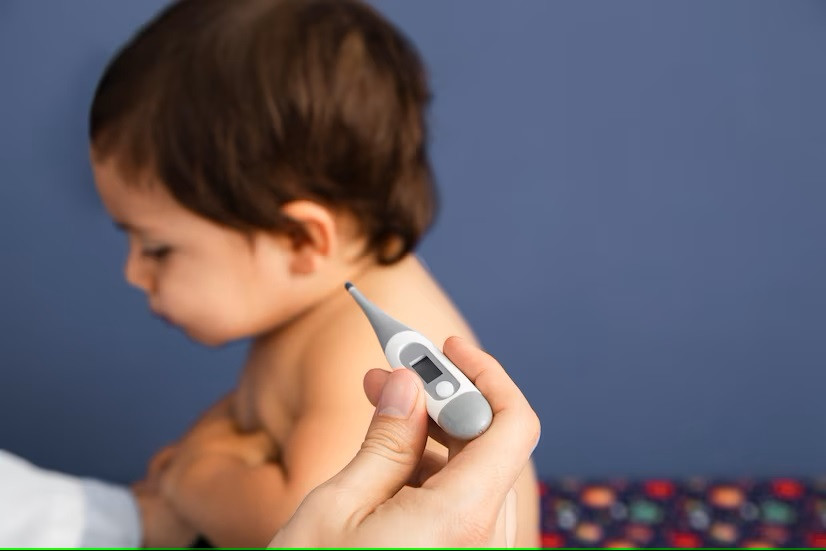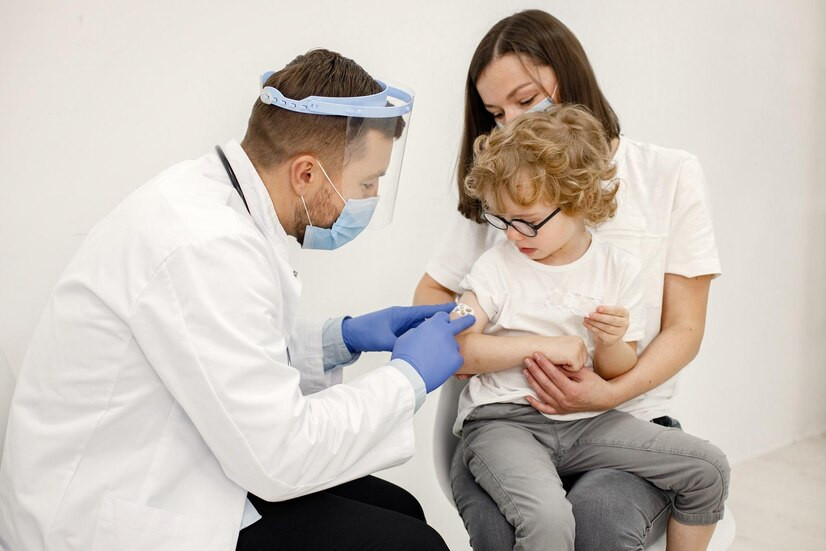The polio vaccine is a vaccine that prevents poliomyelitis, or polio disease. This condition can cause permanent paralysis, particularly in children, and in extreme cases, it can be fatal.
Contact with contaminated feces is the primary route of transmission for the polio virus. The polio virus spreads more easily in regions with poor sanitation and limited access to clean water. To prevent the spread of polio, vaccination coverage should remain high.
Common side effects of Polio vaccine
The polio vaccine, like other immunizations, can have side effects. Common adverse effects of the polio vaccine that typically do not require medical treatment include:
- Bruising, pain, and swelling around the injection site
- Irritable
- Loss of appetite
- Mild fever
- Sleepy
- Vomit
- Headache
Read more: Know The Difference Between The Polyo Tetes Vaccine (OPV) And The Injection Polio Vaccine (IPV)
Side effects of Polio vaccine that need to be reported to your doctor
In addition to the common side effects, you should be aware of the more serious ones. If you suffer the following adverse effects, immediately notify your doctor and receive an evaluation from your doctor:
- Allergic responses include skin rashes, itching, and swelling of the face, lips, or tongue.
- Respiratory problems
- Behavioral changes
- Fever > 38°C
- Crying continuously for three hours or more.
- Seizures
- Appearing extremely weak or weary
What are the recommended actions post-Polio vaccination?
After any immunization, including polio, pay close attention and take note of any side effects that follow. If you notice any unusual or concerning signs, do not hesitate to visit your doctor.
If your child experiences side effects from the polio vaccine, follow the following procedures:
Mild side effects:
- To relieve bruising, pain, or swelling at the injection site, apply a cool compress.
- If the child has a mild fever, ensure that he or she drinks plenty of fluids and rests. As directed by the doctor, give fever medications such as paracetamol if necessary.
- When your child loses his appetite or vomits, keep him hydrated and resting. Give children food that is easy to digest or has a soft texture.
Read more: What Are Polyo Tetes (OPV) Vaccines And Side Effects
Severe side effects:
- Take the child right away to the closest emergency department if the side effects are more significant and include breathing difficulties, swelling of the face, lips, or tongue, itching or hives, or an allergic reaction.
- If your child's behavior changes or he or she screams nonstop for three hours or more, get medical attention immediately.
- If the child's fever exceeds 38 °C, administer fever medication as per the doctor's instructions. Continue to monitor your child's body temperature and call the doctor immediately if the fever does not subside or if there are any other concerning symptoms.
- After receiving the polio vaccine, children who experience seizures or seem extremely weak should be taken immediately to the hospital emergency room for an immediate assessment.
The polio vaccine is an essential weapon for preventing a disease that can result in paralysis and death. If you have concerns about the side effects, the child has a history of extreme allergies, or your child has certain health conditions, you can either visit a doctor or make use of the consultation features that are available in the Ai Care application by downloading the Ai Care application from the App Store or Play Store.
Looking for more information about pregnancy, breastfeeding, and the health of women and children? Click here!
- dr Nadia Opmalina
Cleveland Clinic (2024). Poliovirus Vaccine, Inactivated, IPV. Available from: https://my.clevelandclinic.org/health/drugs/19740-poliovirus-vaccine-inactivated-ipv
Safira Indirani (2020). Poliomyelitis (Penyakit Virus Polio). Available from: https://infeksiemerging.kemkes.go.id/penyakit-virus/poliomyelitis-penyakit-virus-polio
Mayo Clinic (2024). Polio. Available from: https://www.mayoclinic.org/diseases-conditions/polio/symptoms-causes/syc-20376512
WHO (2023). Poliomyelitis. Available from: https://www.who.int/news-room/fact-sheets/detail/poliomyelitis
CDC (2024). Polio Vaccine. Available from: https://www.cdc.gov/vaccinesafety/vaccines/polio-vaccine.html
Mayo Clinic (2024). Poliovirus Vaccine, Inactivated (Injection Route). Available from: https://www.mayoclinic.org/drugs-supplements/poliovirus-vaccine-inactivated-injection-route/side-effects/drg-20069860
US Department of Health and Human Services (2022). Vaccine Side Effects. Available from: https://www.hhs.gov/immunization/basics/safety/side-effects/index.html












